How we test electric blankets - for a cosy, toasty bed set-up
Some notes from an electric blanket nerd
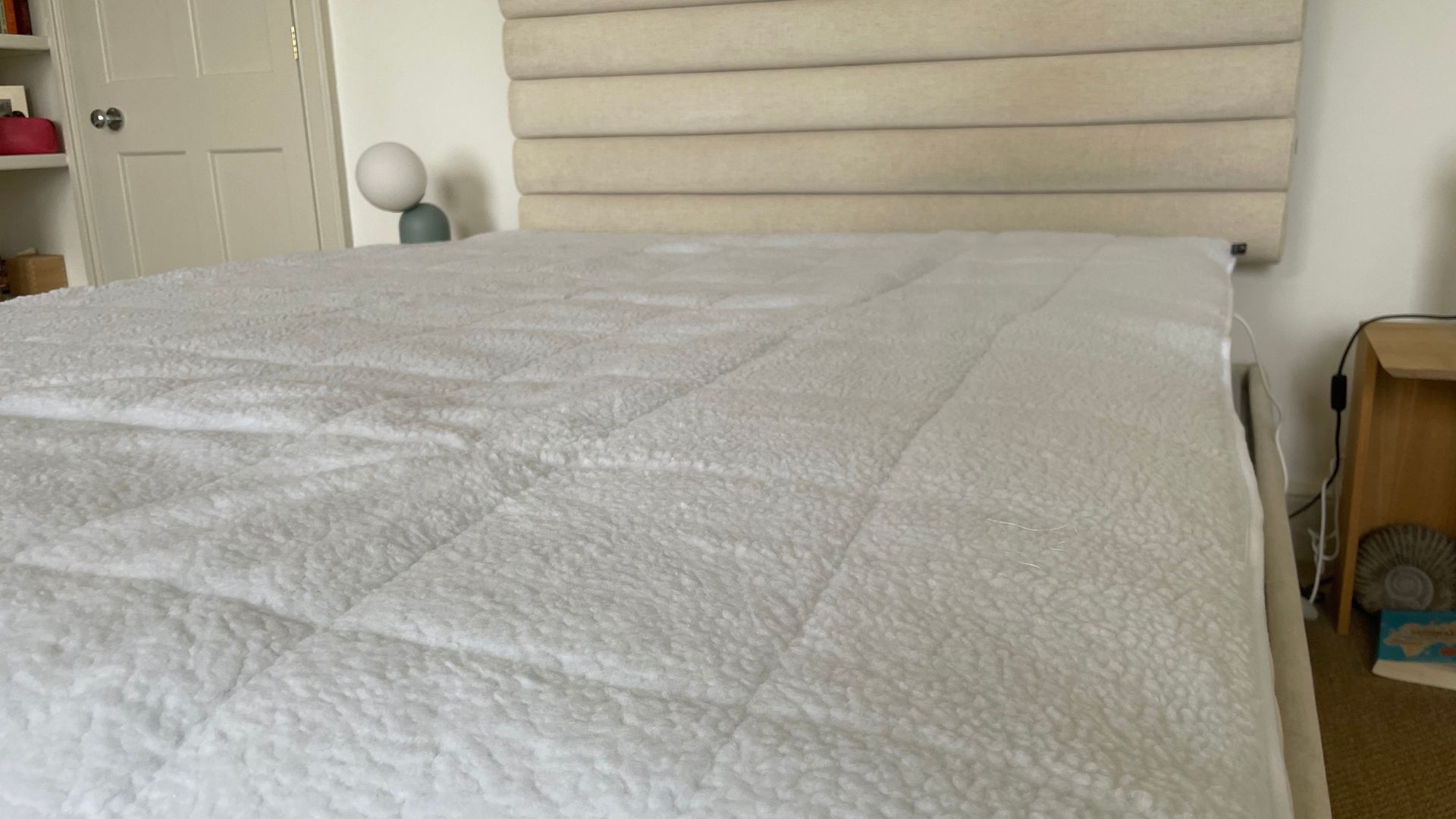

After sixteen years of snuggling up and snoozing on electric blankets, I find it easy to discern the perfect from the patchy. Now, the time has come to share exactly how we test electric blankets when we're curating buying guides for you.
Not many people take an interest in exactly how we test electric blankets, but, because you’re here, I can assume you’re part of my favourite crew. There are only a few of us who care this deeply about finding the best electric blankets, but I can promise you that it’s worth being discerning.
From heat-up time, temperature, and texture, I’ll give you a breakdown of exactly what happens in my home or in a reviewer’s when we test out a new electric blanket. All of these tests are designed to whittle out the cool to the comfy. Just as we at woman&home have honed how we test every product we review, I've developed some failsafe tests for electric blankets, specifically. Without further ado, here’s everything you need to know.
Research
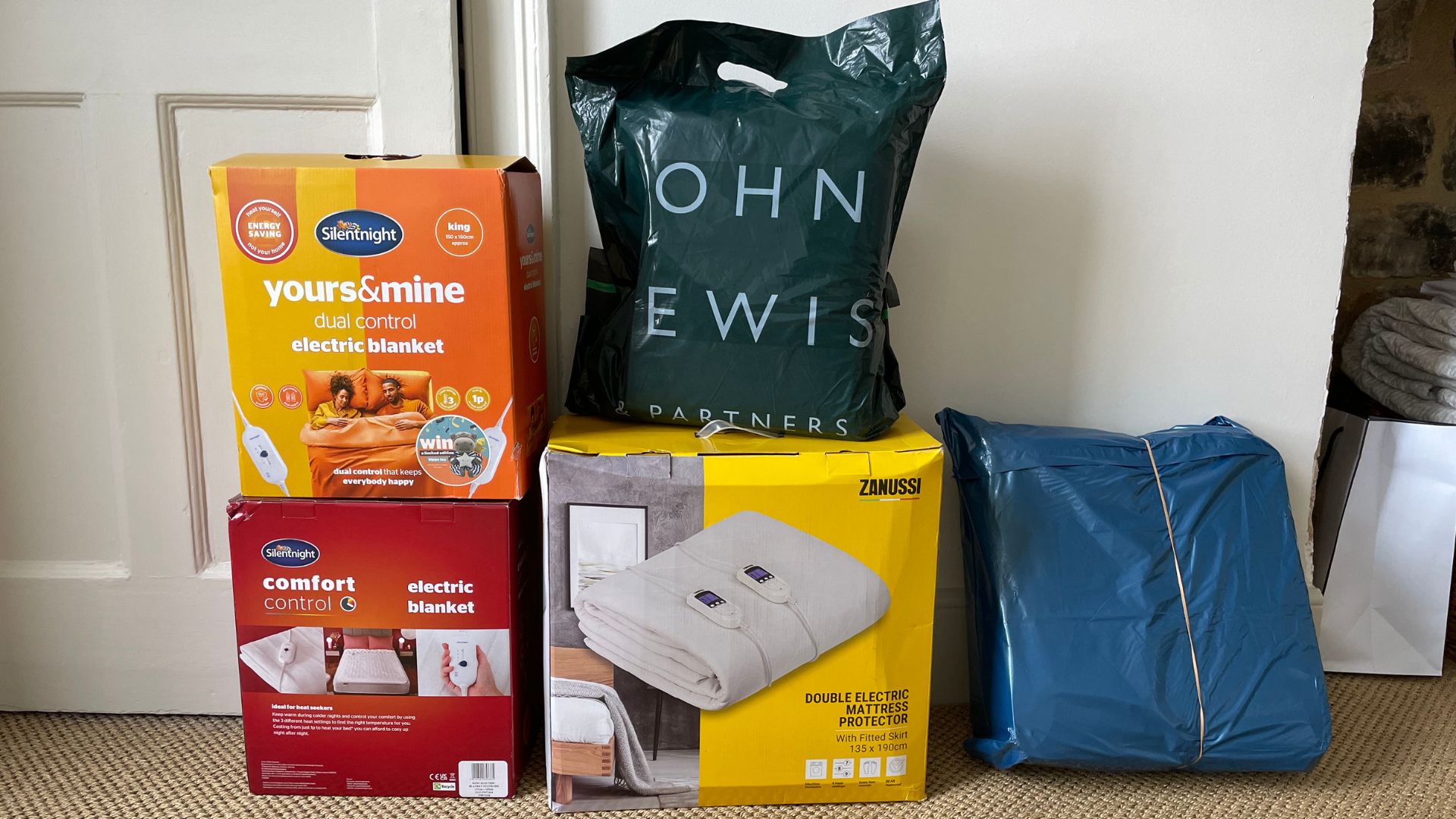
This doesn’t really get documented anywhere else on the site, so I want to give some space to the incredible amounts of research that go on behind the scenes of testing the best electric blankets. The cynical readers will see this as my chance to give myself a pat on the back. Maybe it is.
Before any electric blankets make it to the bed or the sofa, I do a lot of research. I spend my days talking to big-name brands, looking on Kickstarter for industry disrupters, and nosing around all the best electric blankets. When the new bamboo electric blankets hit the shelves this winter, you can rest assured that I’ve already been sleeping on them, talking to material scientists about them, and looking them up extensively. I've also written about what I wish I knew before buying an electric blanket too. I’m an electric blanket nerd and I’m not shy about it.
Unboxing
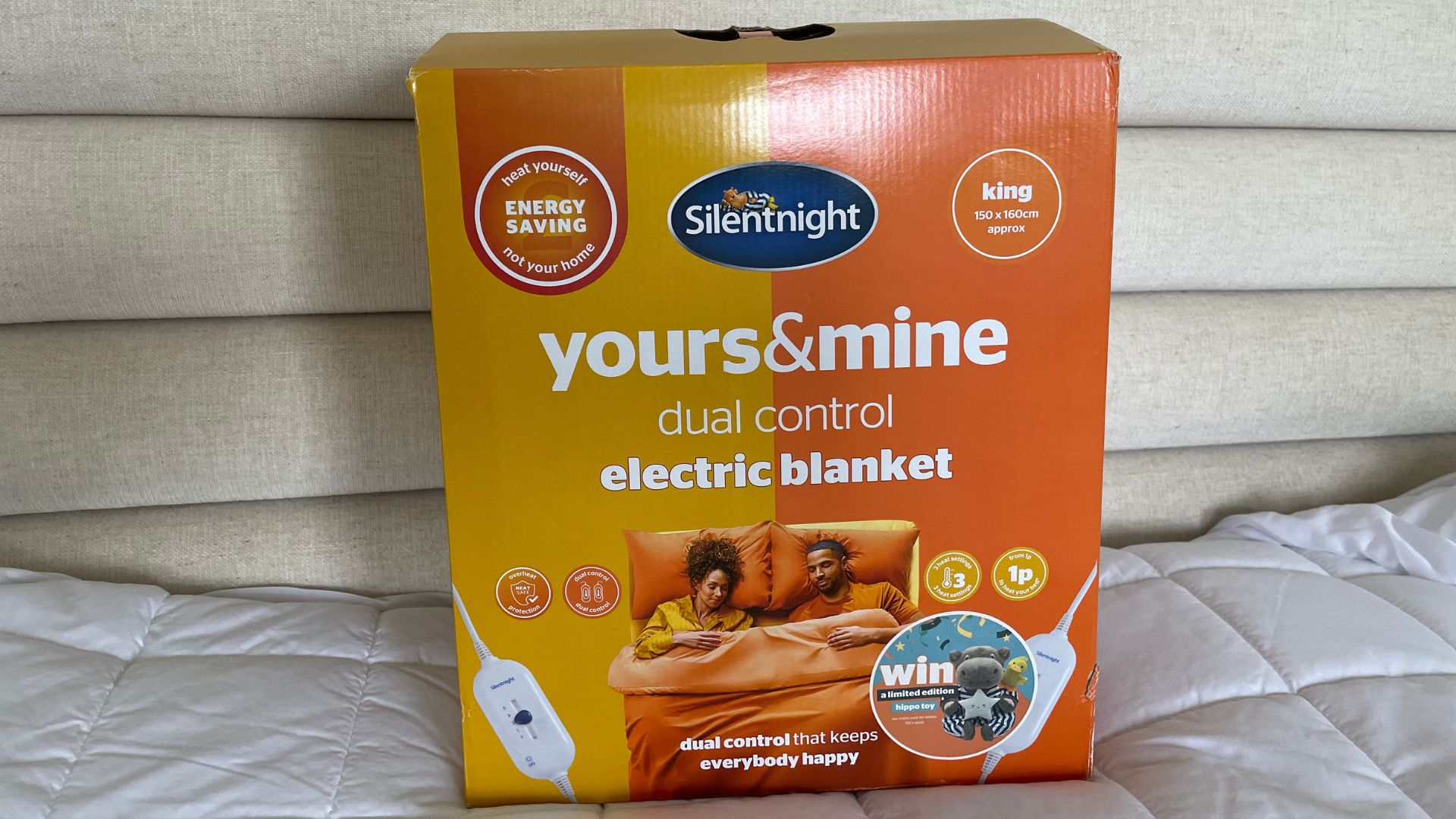
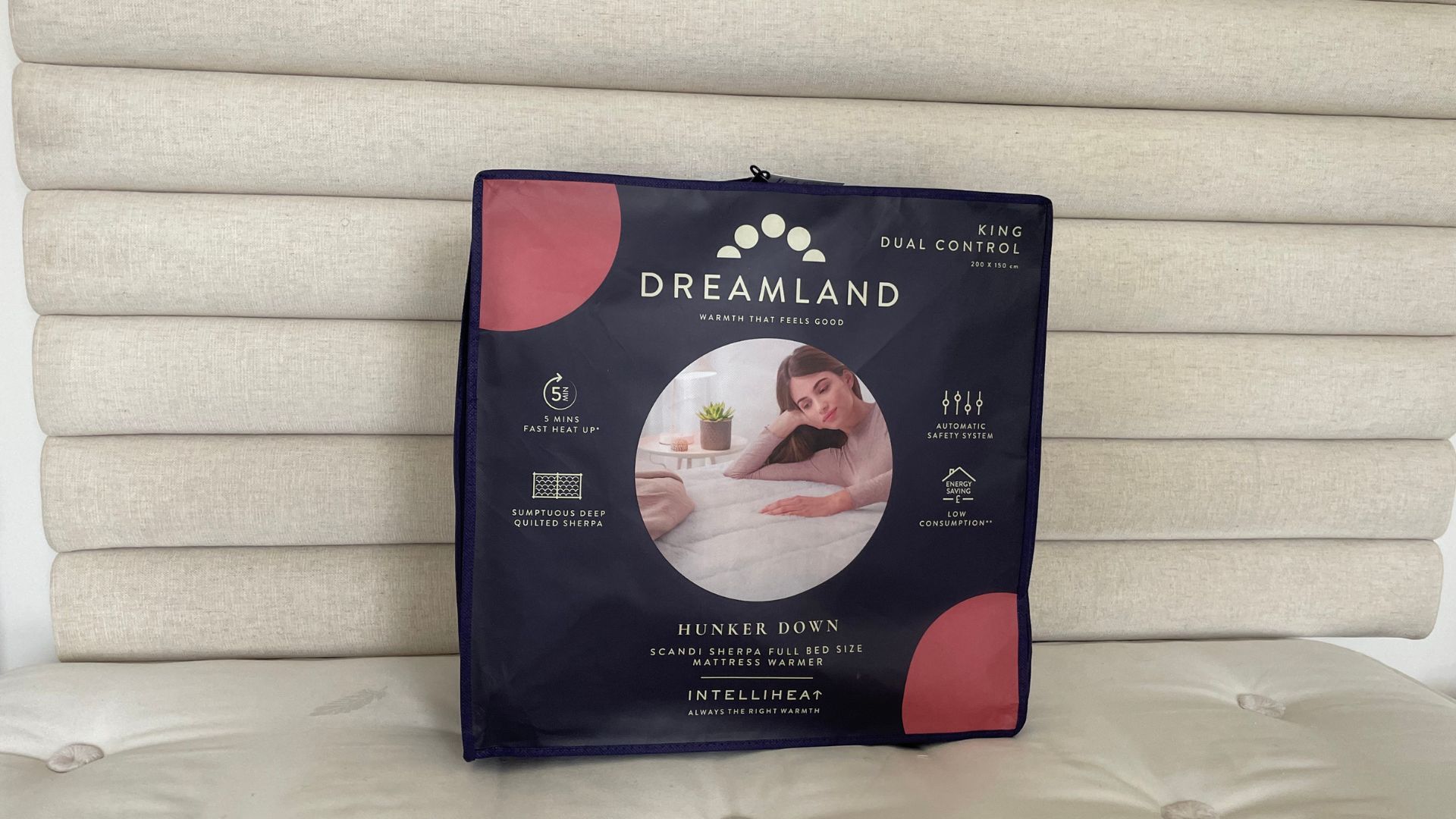
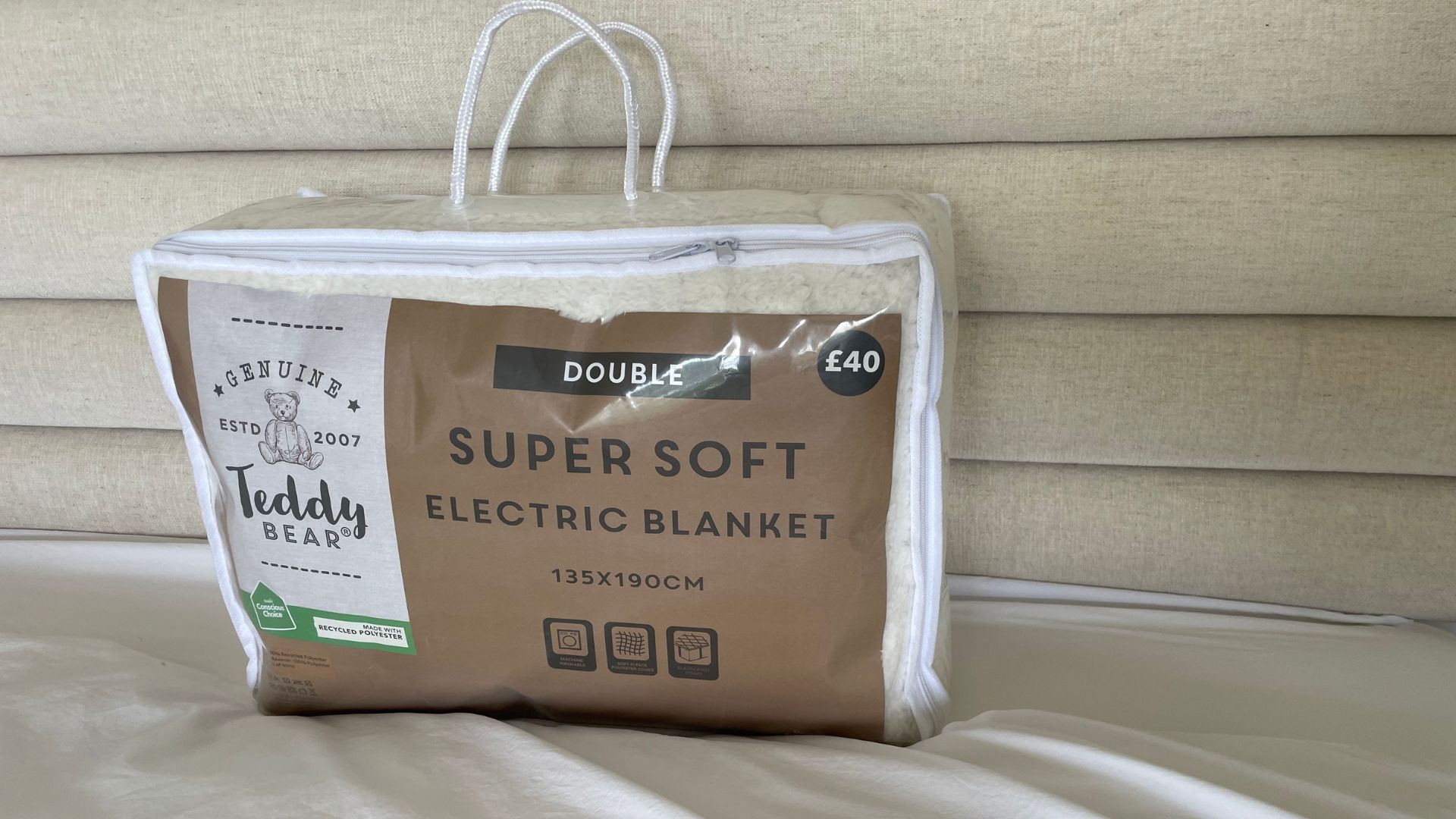
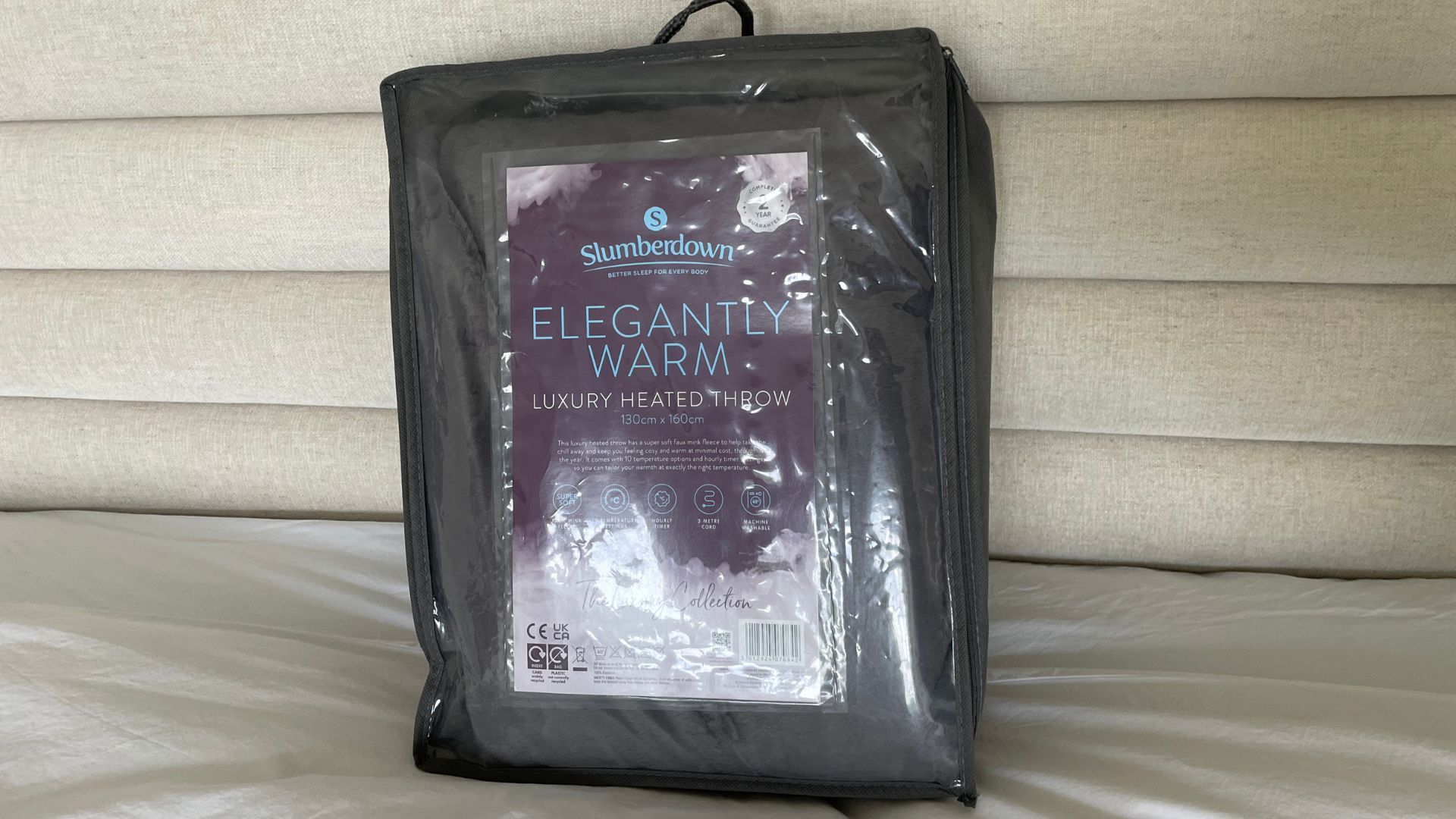
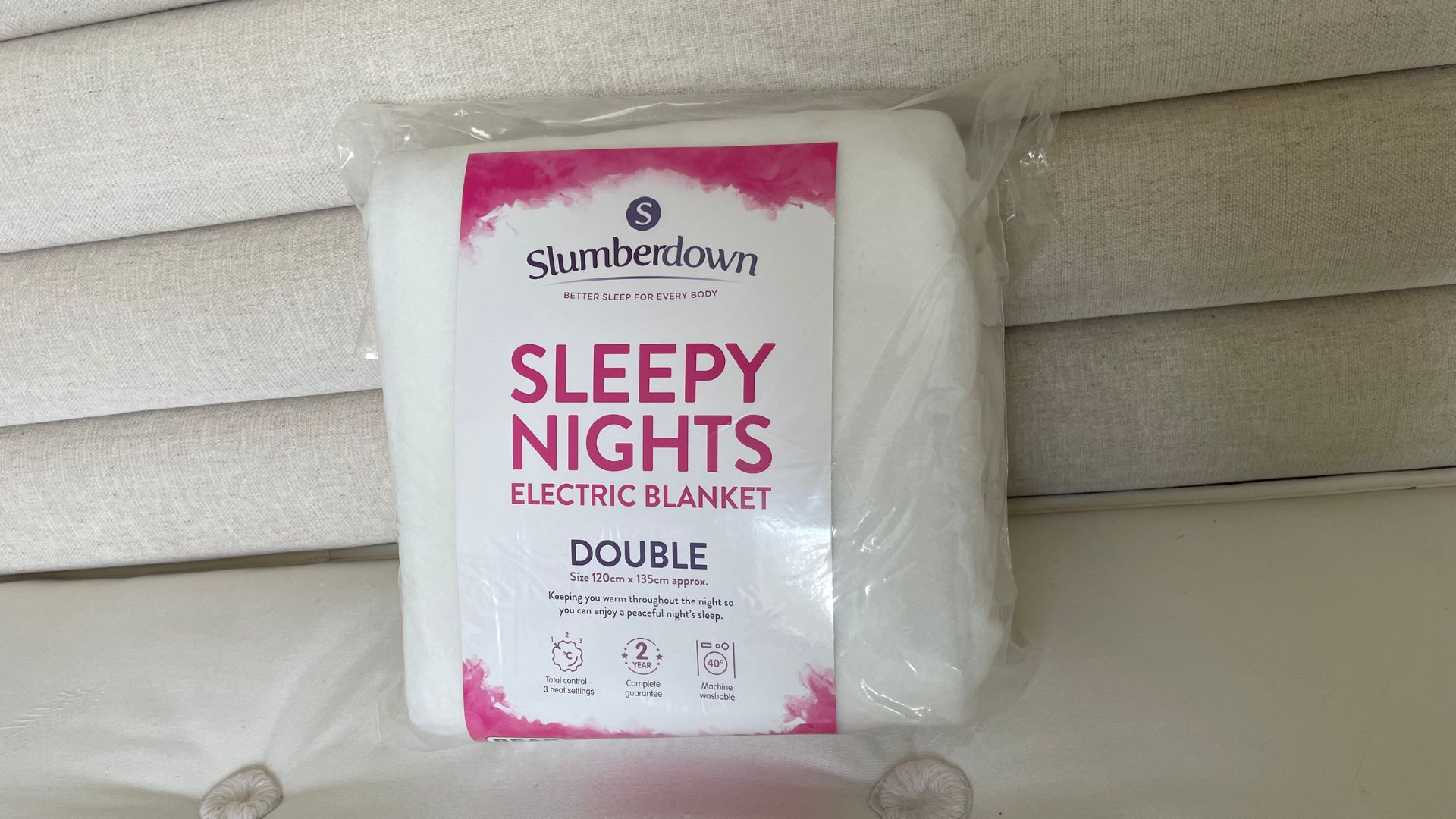
The next stage after research is about real-life experience. You wouldn’t get far in one of our reviews (or buying guides) without finding out what our experts think from personal, hands-on time with an electric blanket. All of this starts, of course, with the packaging and unboxing of a product.
For most people, the unboxing process is fleeting. You rip off the paper, throw out the plastic, and you’re done. Not so. Some of the best electric blankets come in dust bags and special storage containers so that you can keep yours safe over the summer when it’s not in use. I’ve always found that this thoughtful touch tells you a lot about a brand. If they’ve taken the time to think about you and how you’ll use the blanket in the longer term, the chances are that they’ve also thought about other features of the blanket.
Sign up for the woman&home newsletter
Sign up to our free daily email for the latest royal and entertainment news, interesting opinion, expert advice on styling and beauty trends, and no-nonsense guides to the health and wellness questions you want answered.
If you’ve opted for a cheaper electric blanket or a model that doesn’t need to come off the bed, it’ll come packaged in a different way. Here’s where I think about sustainability. In this day and age, it should be easy to send an electric blanket in paper, cardboard, and recyclable materials. I’ve seen it done. However, some brands opt for cheaper, easier plastic films. You can recycle these in plastic banks (these are often at the entrances to supermarkets), if you want to make the effort.
What we test
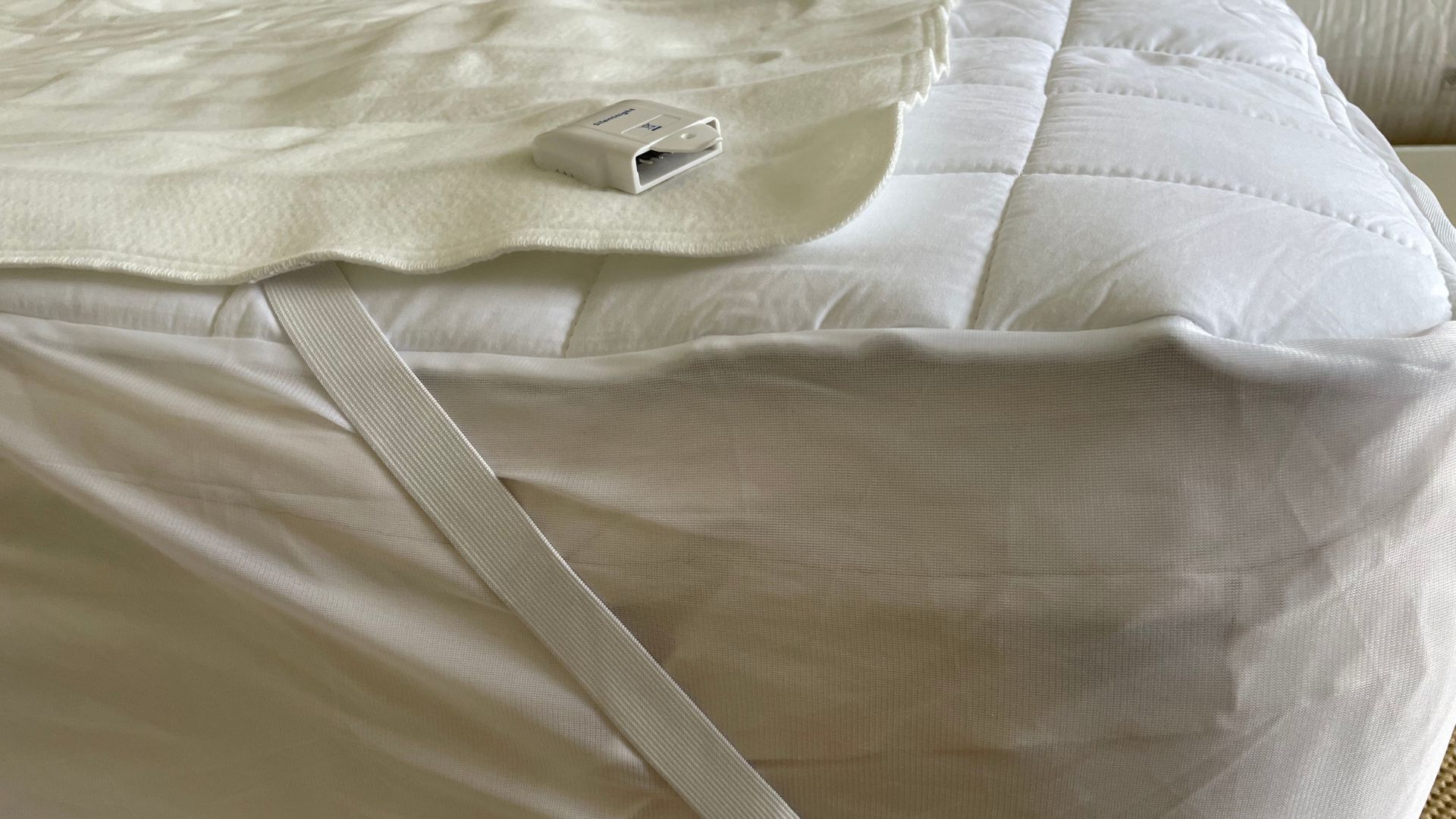
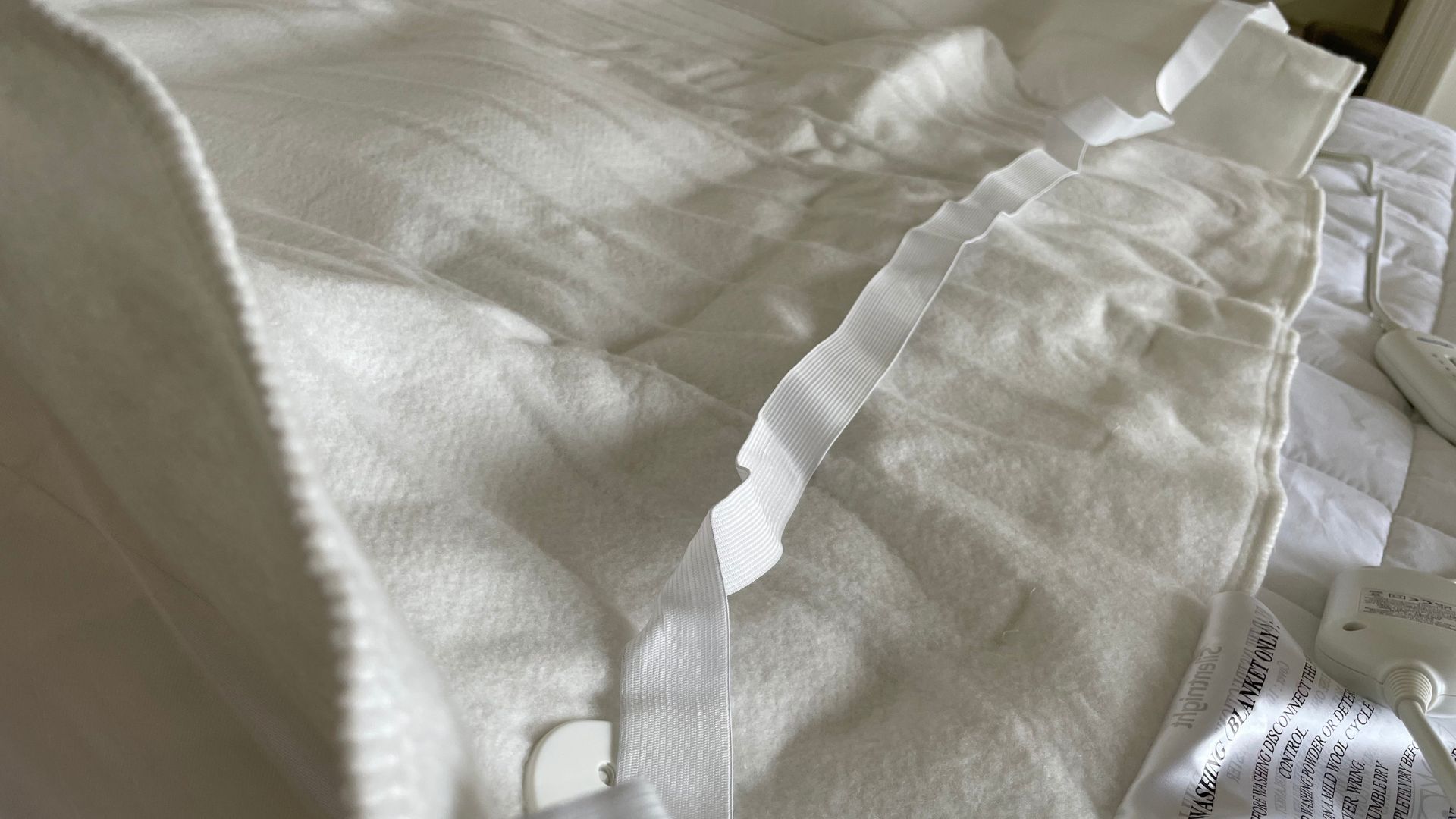
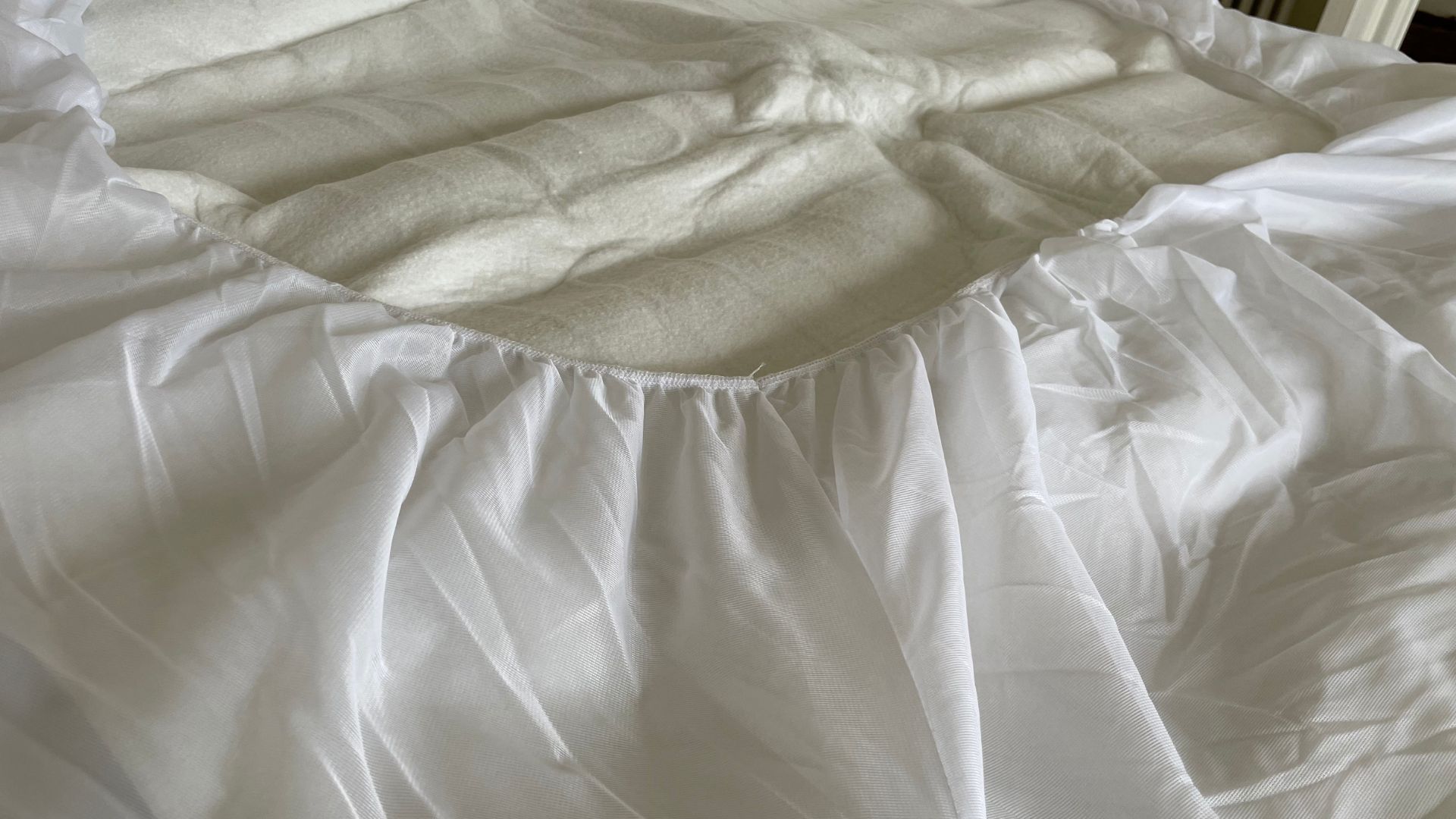
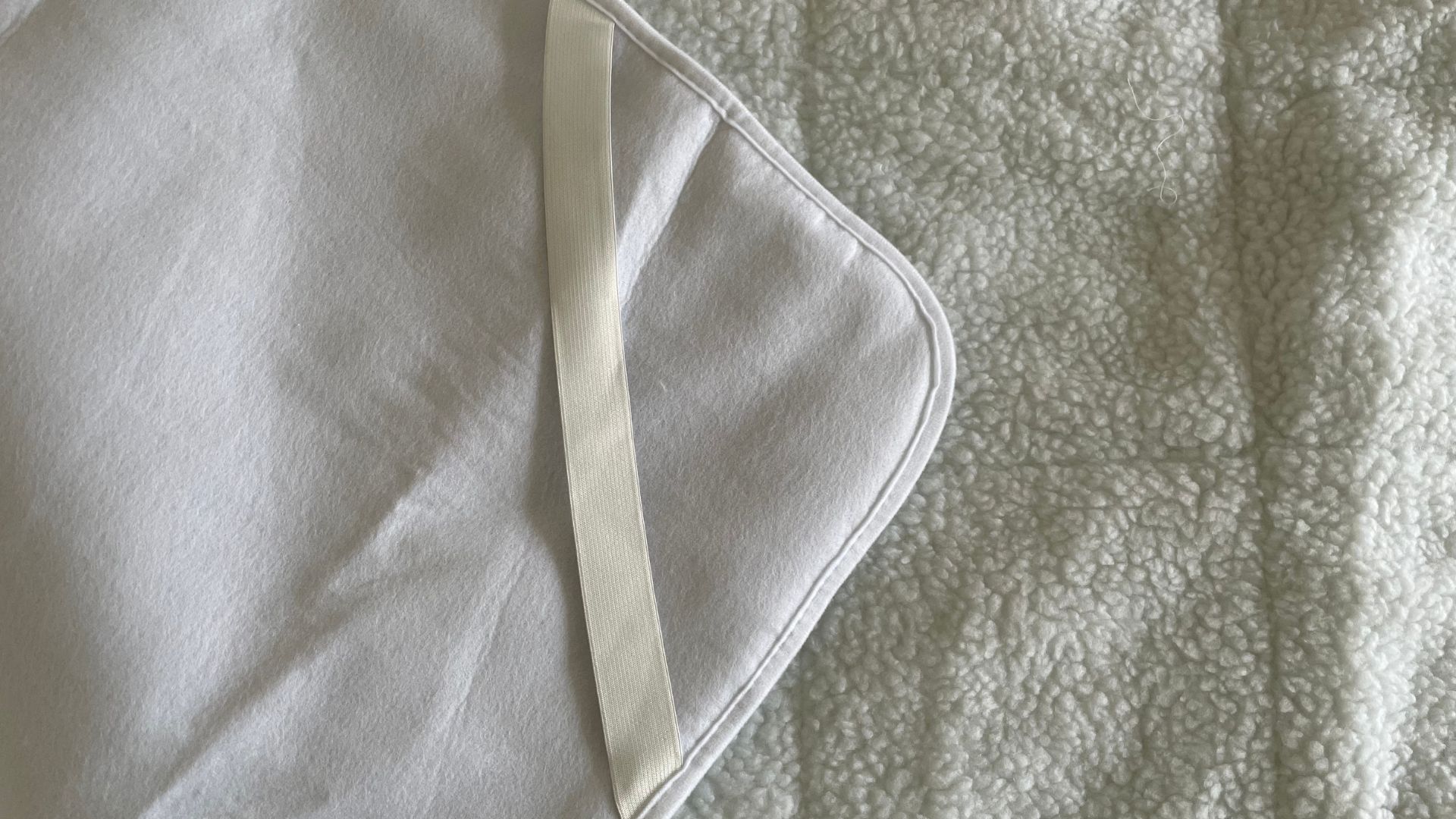
Next, we get to the nitty gritty and all the electric blanket mistakes that people make. I’ll talk you through how the electric blanket fits on the bed. Some have two long elastic straps at either end, others will have four short straps that wrap around the corners of the mattress. If it’s not designed to sit on or under the sheet and we’re dealing with a warming throw instead of an electric blanket, I’ll let you know. If you're not sure of the difference between electric blankets and warming throws, I've got you covered too. I have also seen electric blankets that double up as mattress protectors, wrapping around the corners of the mattress with an elasticated skirt, as well as wearable heated throws (which is a whole different electric blanket category altogether).
At this point, it’s worth noting how well the electric blanket covers the bed. Cheaper models will approximate size, skimping on the corners. Small people won’t feel the pain of this, but those who are a little taller might feel that their feet get cold or their shoulders are a bit chilly. I'll also explain whether your electric blanket should go over your mattress topper, protector, and sheets. You might even see that the remote doesn’t quite align like you would like. Knowing the fit of the electric blanket is surprisingly important for how your experience with the electric blanket will pan out in the longer term.
Once the blanket is on the bed, I’ll lie on it to get an initial impression of what it’s like to sleep on. Cheaper blankets will have thick wires that you might feel through the sheets. These have never stopped me from sleeping, but they’re not as comfortable as plusher options. Some electric blankets are quilted or covered with a sherpa or teddy fabric. These will suit people who want extra warmth or some extra softness, but they might put off those who don’t want a high-maintenance or super stuffy bed. I can’t relate, but it is good to know before you make an investment in your electric blanket.
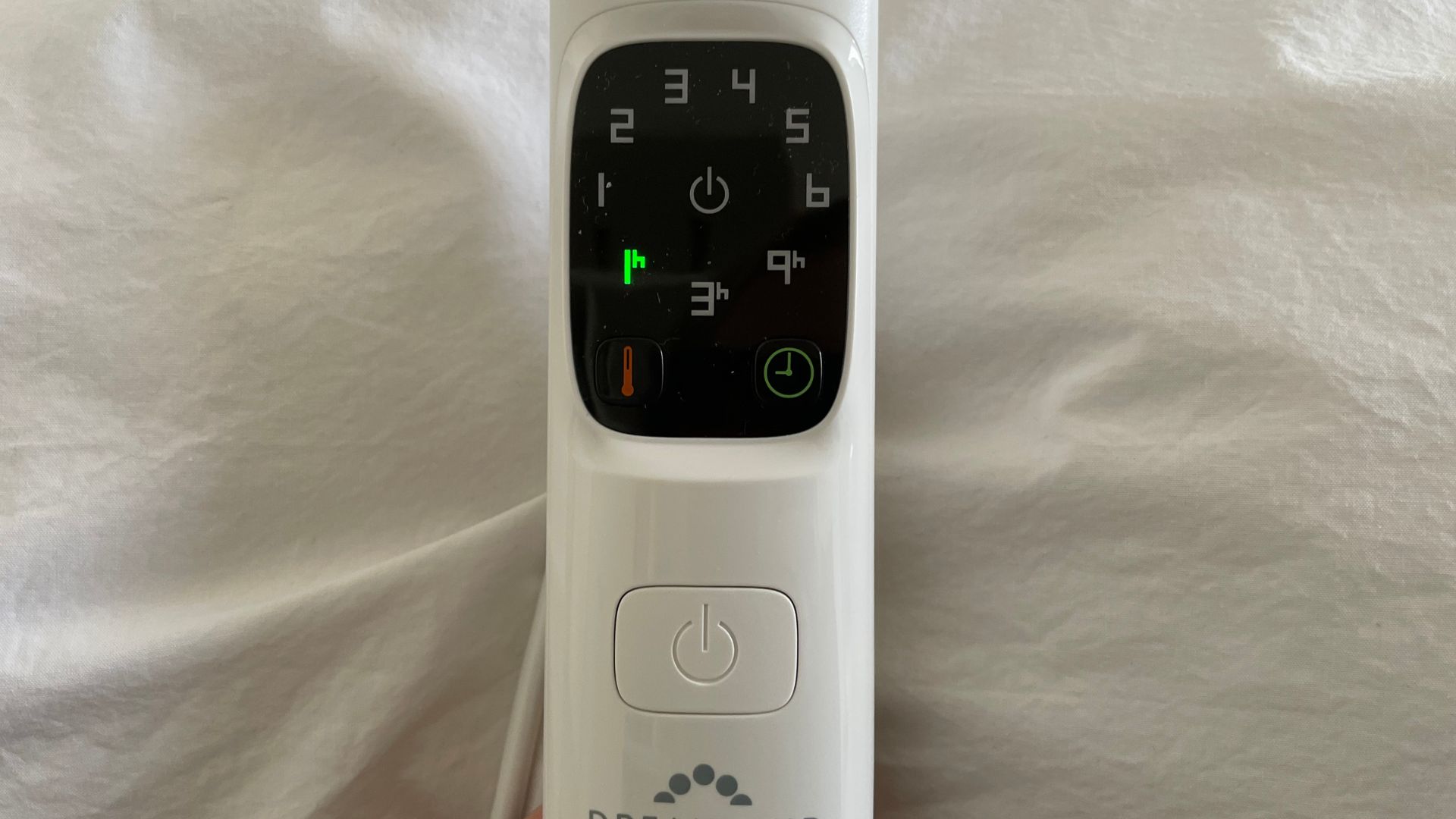
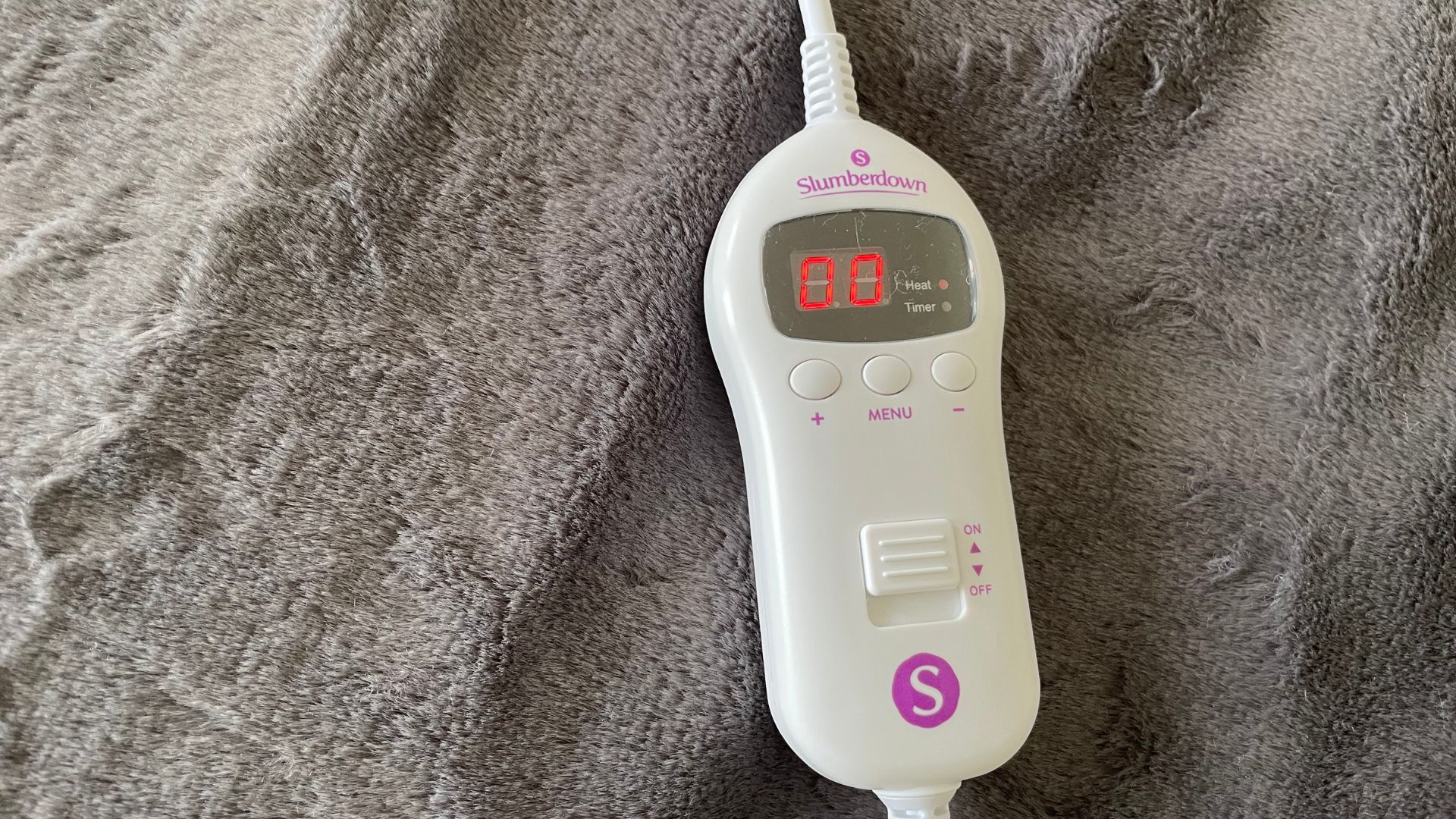
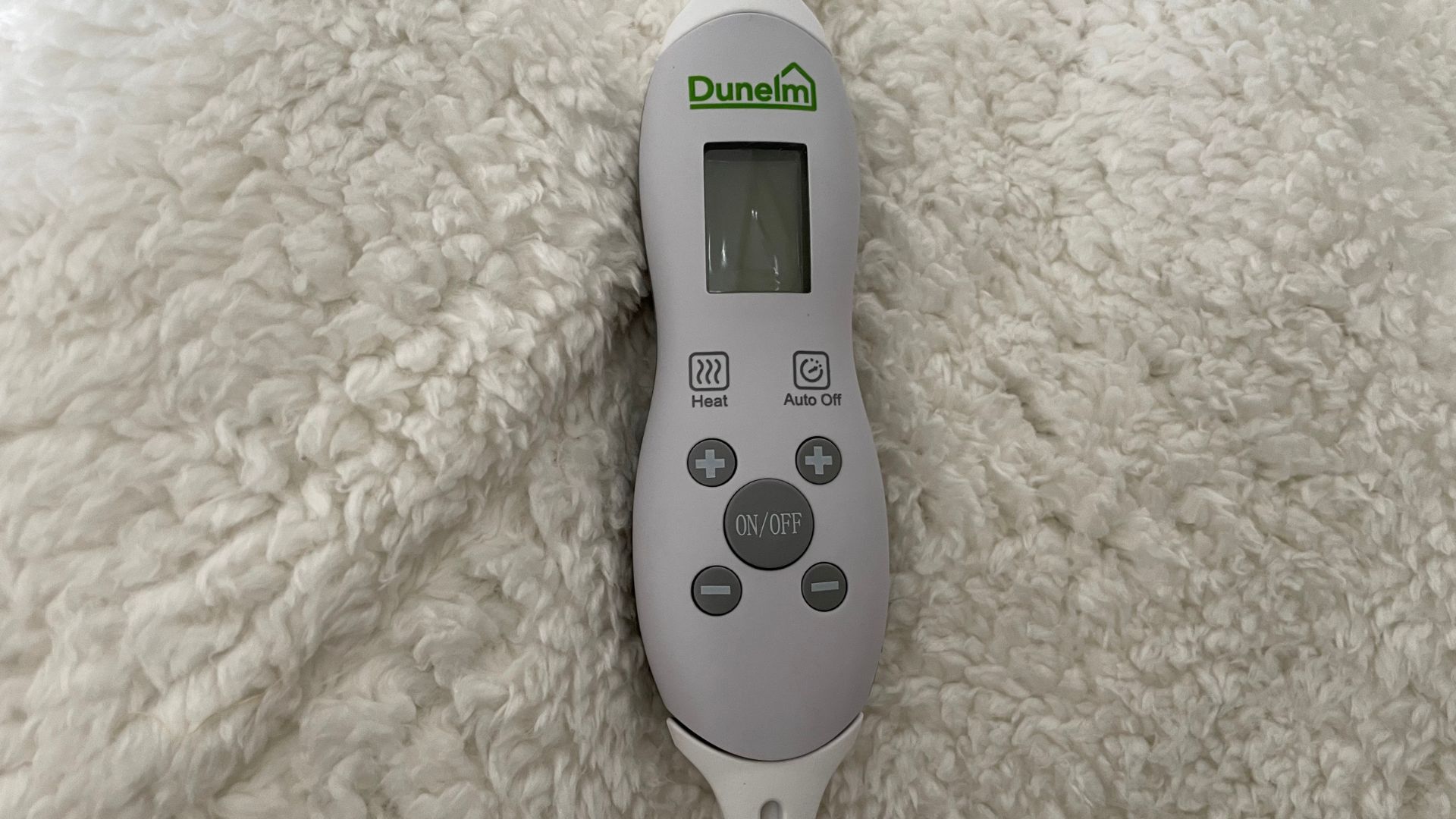
Of course, I sleep on these every night for months. I make notes in the morning, evening, and in the middle of the night if there’s anything that I think you should know about. However, the most helpful tests for comparison are those that I run in the daytime. I look at the electric blanket controller and make notes of the pre-set and temperature settings. Then, I test and time each one. I check the temperature of the bed after five minutes, every five minutes and note it down. A speedy electric blanket will heat up the bed in five minutes (I’ve never felt a bed get hot in less than five minutes) and a cheaper one could take up to an hour. Some people are happy to compromise and set their electric blankets running a long way before bed, but others, who are a little more forgetful, will need the five-minute speediness of premium electric blankets.
I like to check that the different temperature settings are worthwhile, so there needs to be a distinct, purpose to each temperature. This isn’t sponsored, but I think Dreamland does a really good job of this. Their lowest temperature setting, 1, is designed for use all night long. The setting 6 is designed for a 5-minute heat up, and the grades between cover all the other eventualities. It’s perfect.
Pre-sets are a luxury that I also like to comment on. They’re great if heat makes you sleepy (me too), but not necessary if you use your electric blanket properly (experts say you should heat up the bed before you get in it).
Cleaning
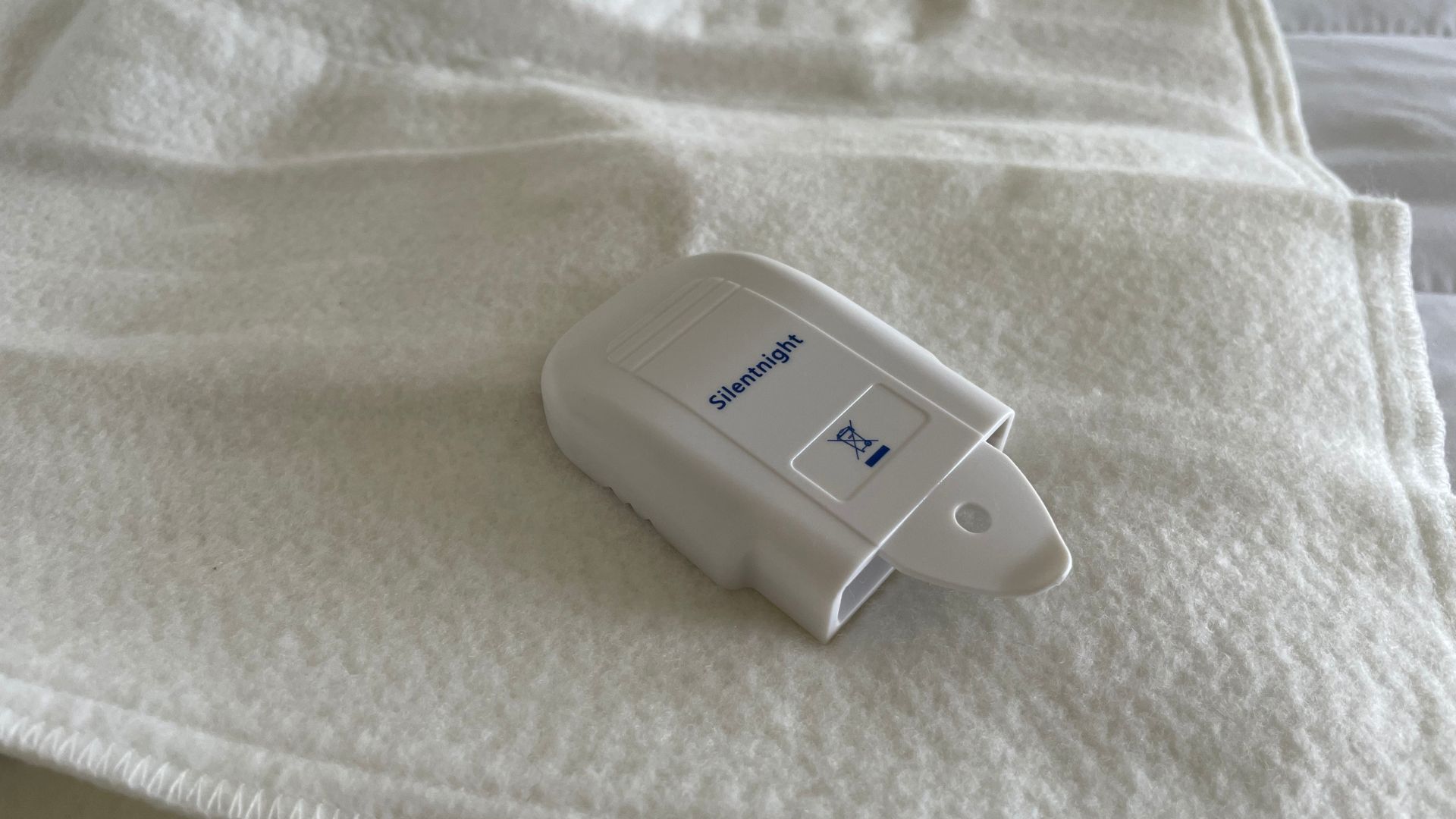
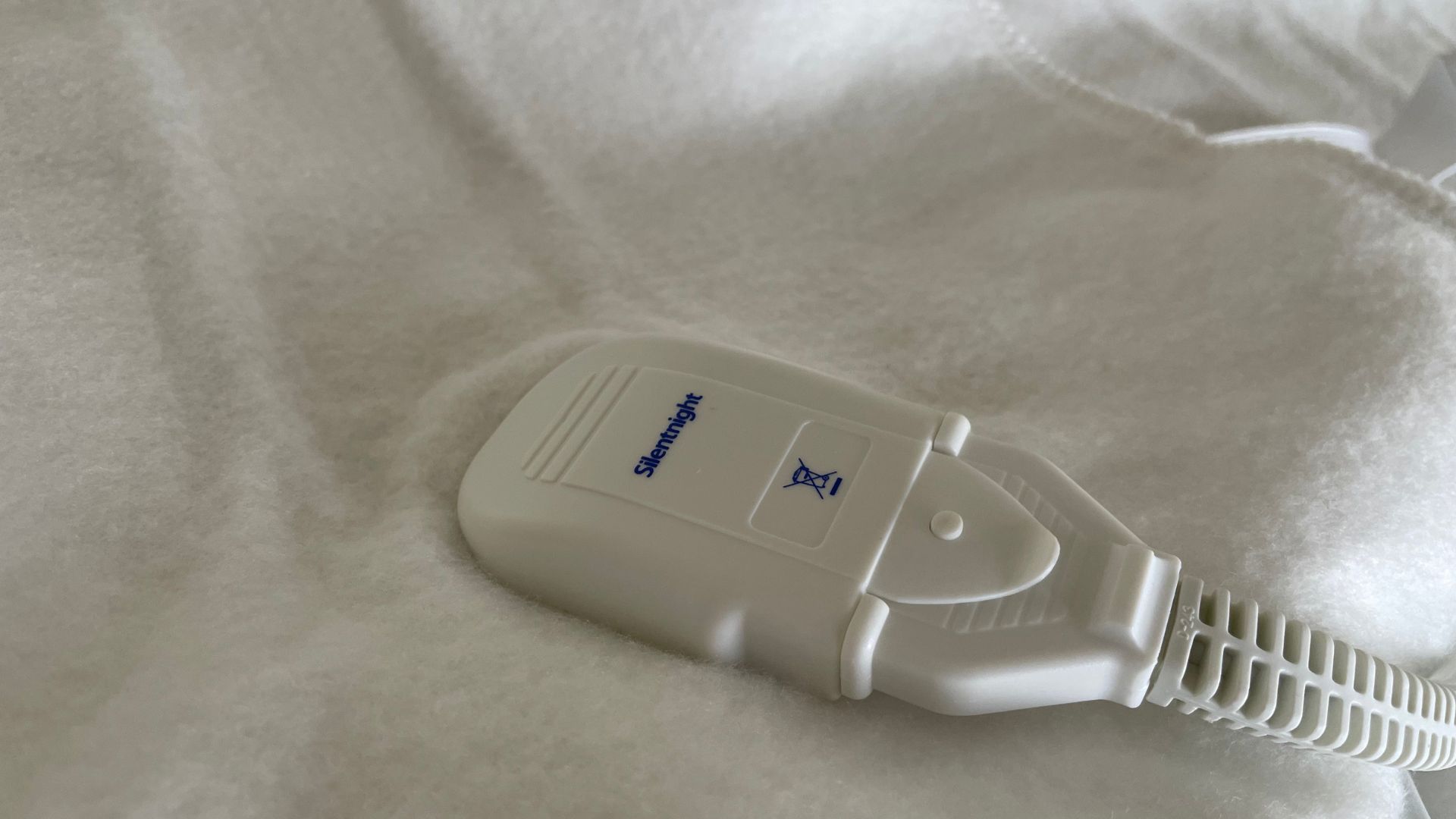
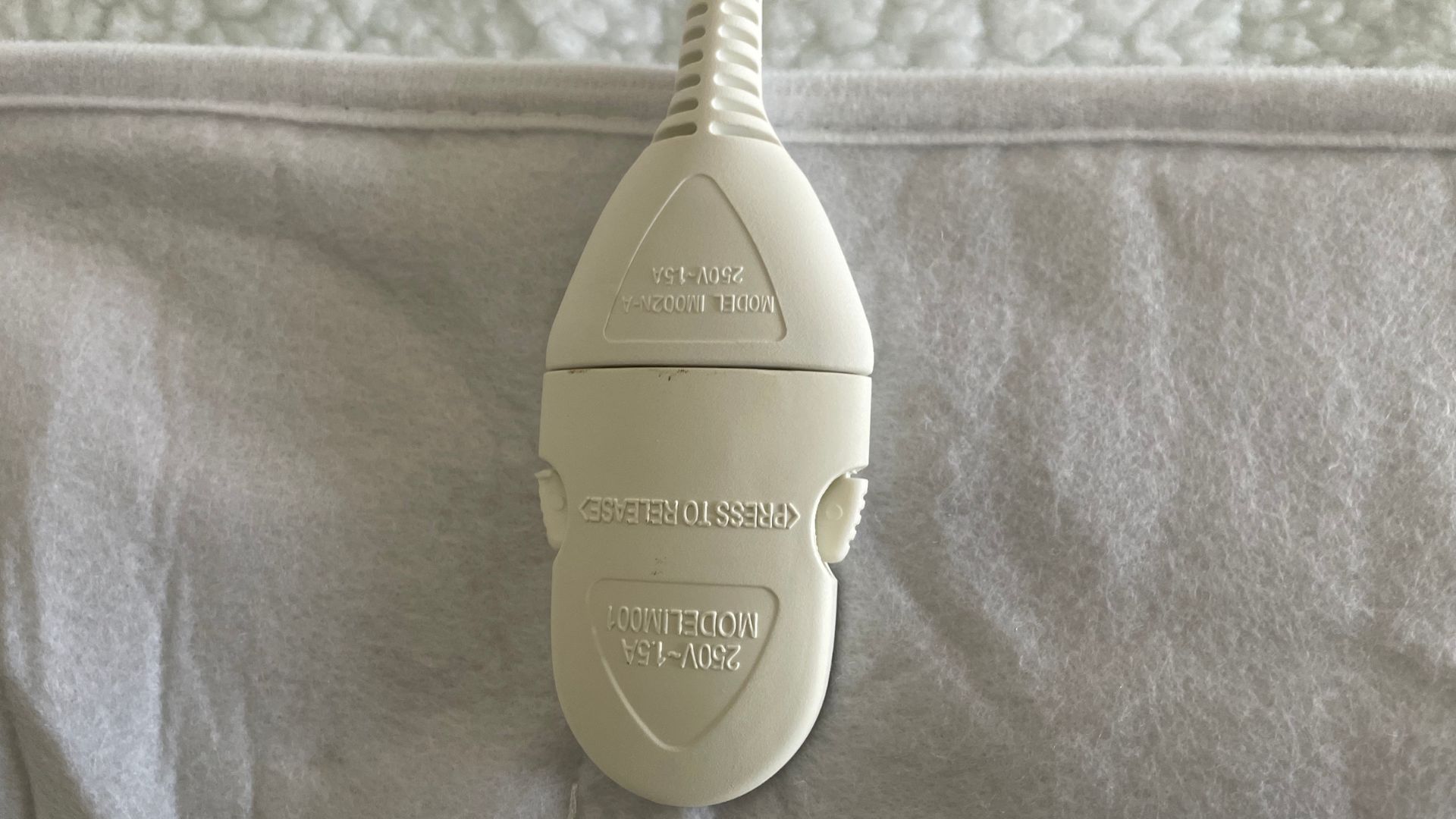
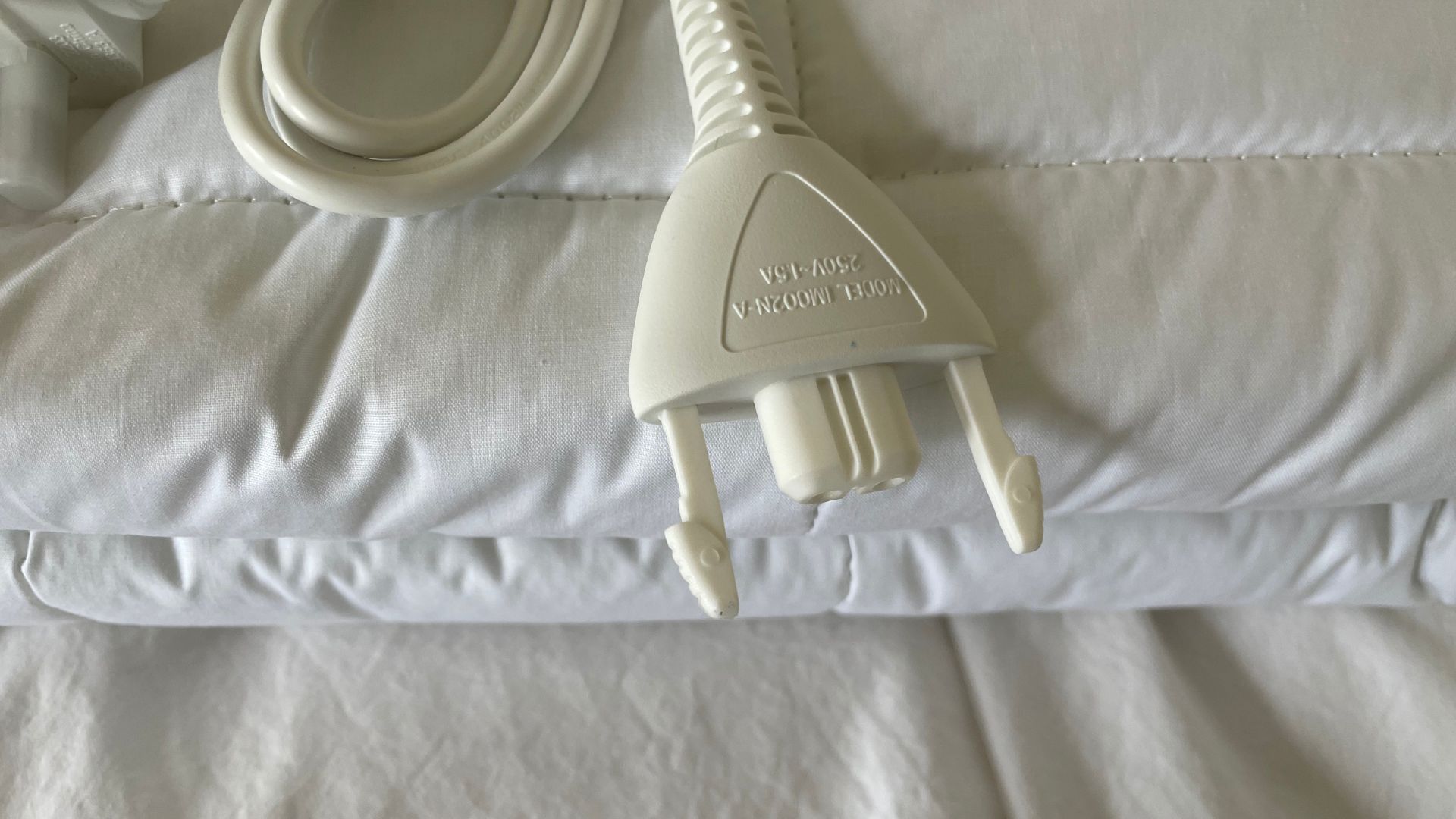
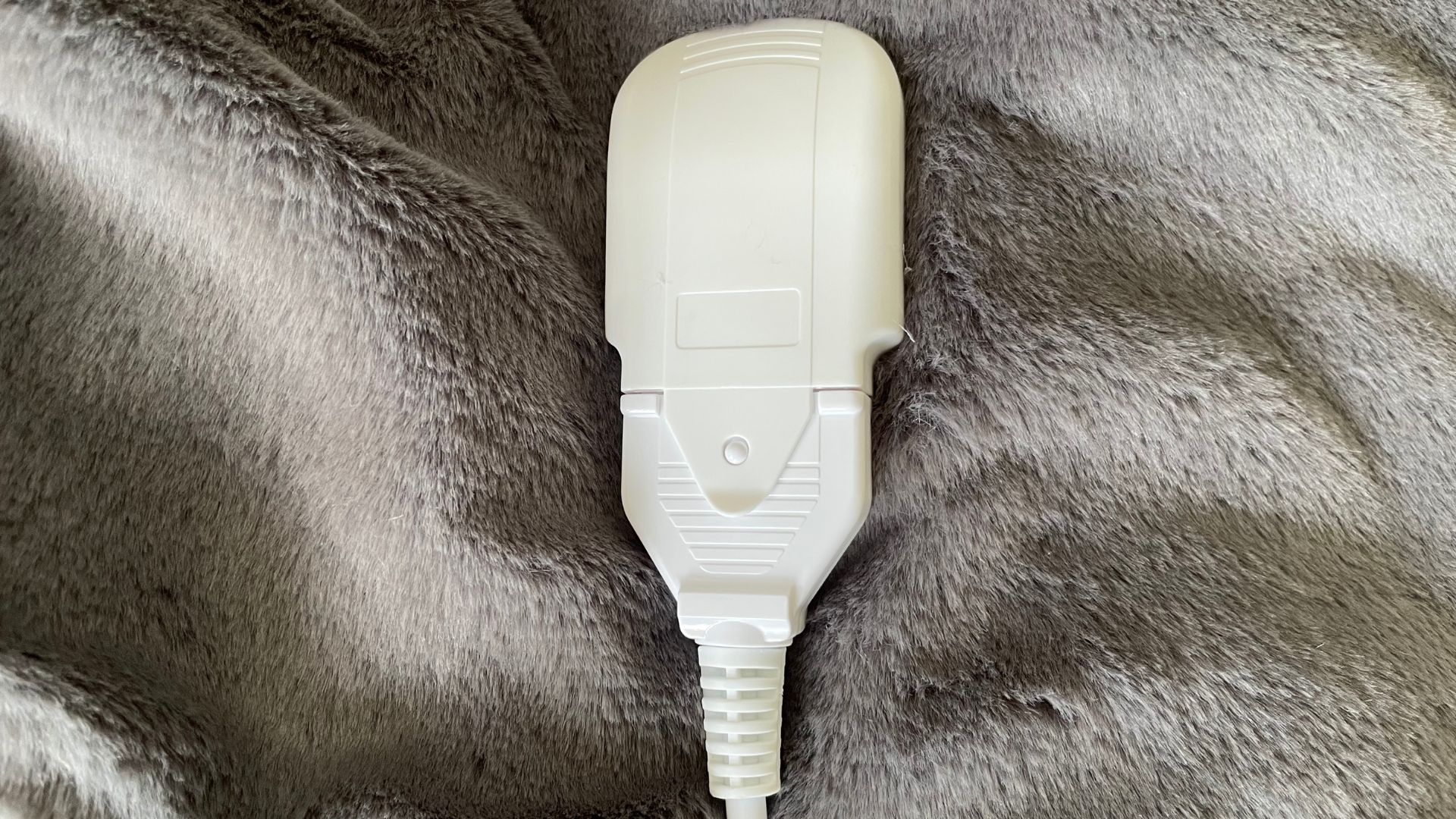
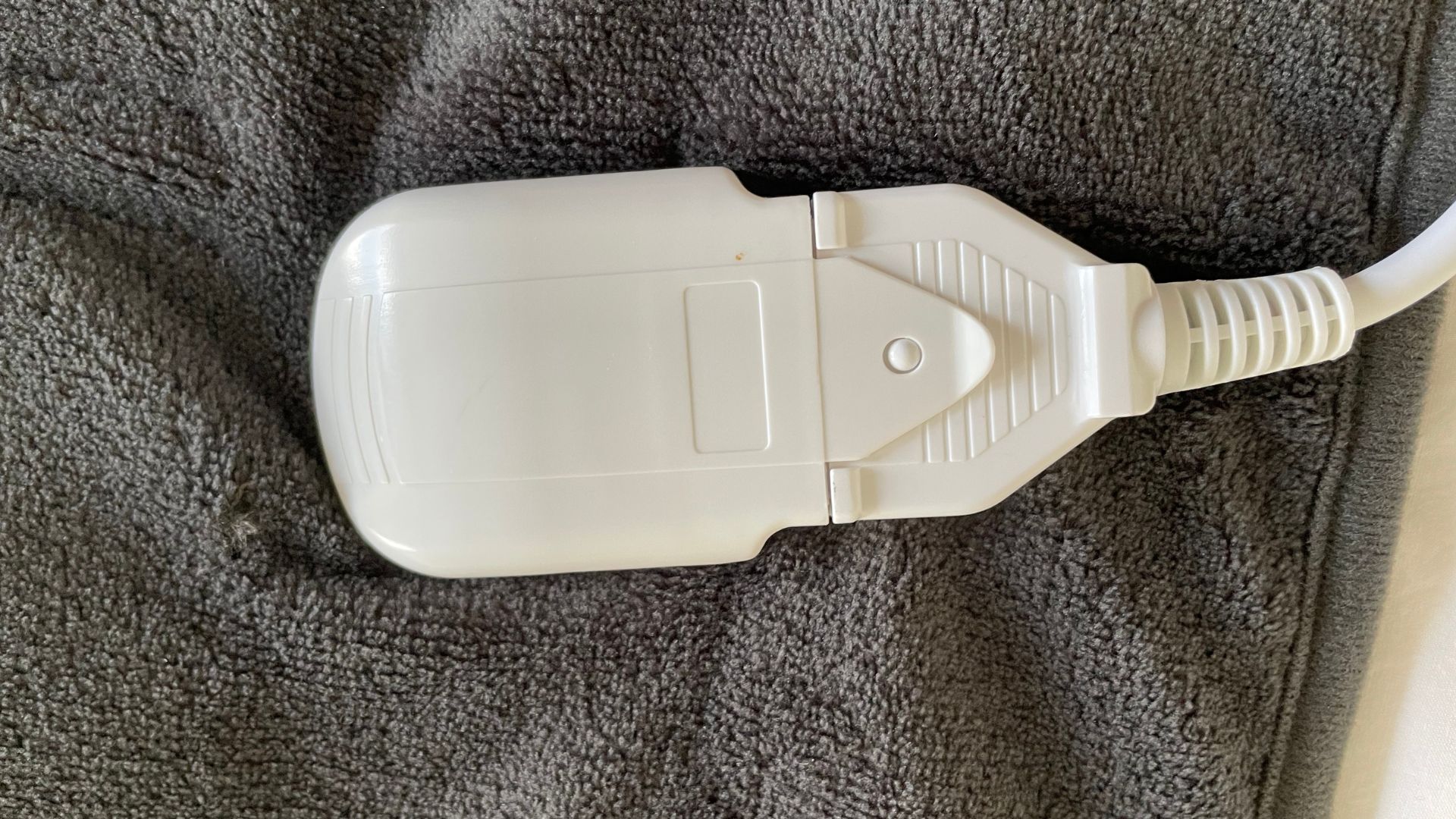
After all that sleeping and heating, you’ll need to do some maintenance. We have a page dedicated to how to clean an electric blanket, because not many people bother. It’s actually really important that you know how to do this since you sweat and shed all sorts in the night and your skin needs to be on clean, fresh materials. Different electric blankets come with different needs. Some let you unclip the plug and throw the electric blanket in the washing machine and tumble dryer, which still baffles me. I always recommend using lower temperatures and gentle laundry detergents to look after the fabrics and wires as much as possible. Others will need to be hand washed and air dried, which is a little more effort, and certainly worth accounting for when you’re choosing the perfect electric blanket for you.
Comparing the electric blankets
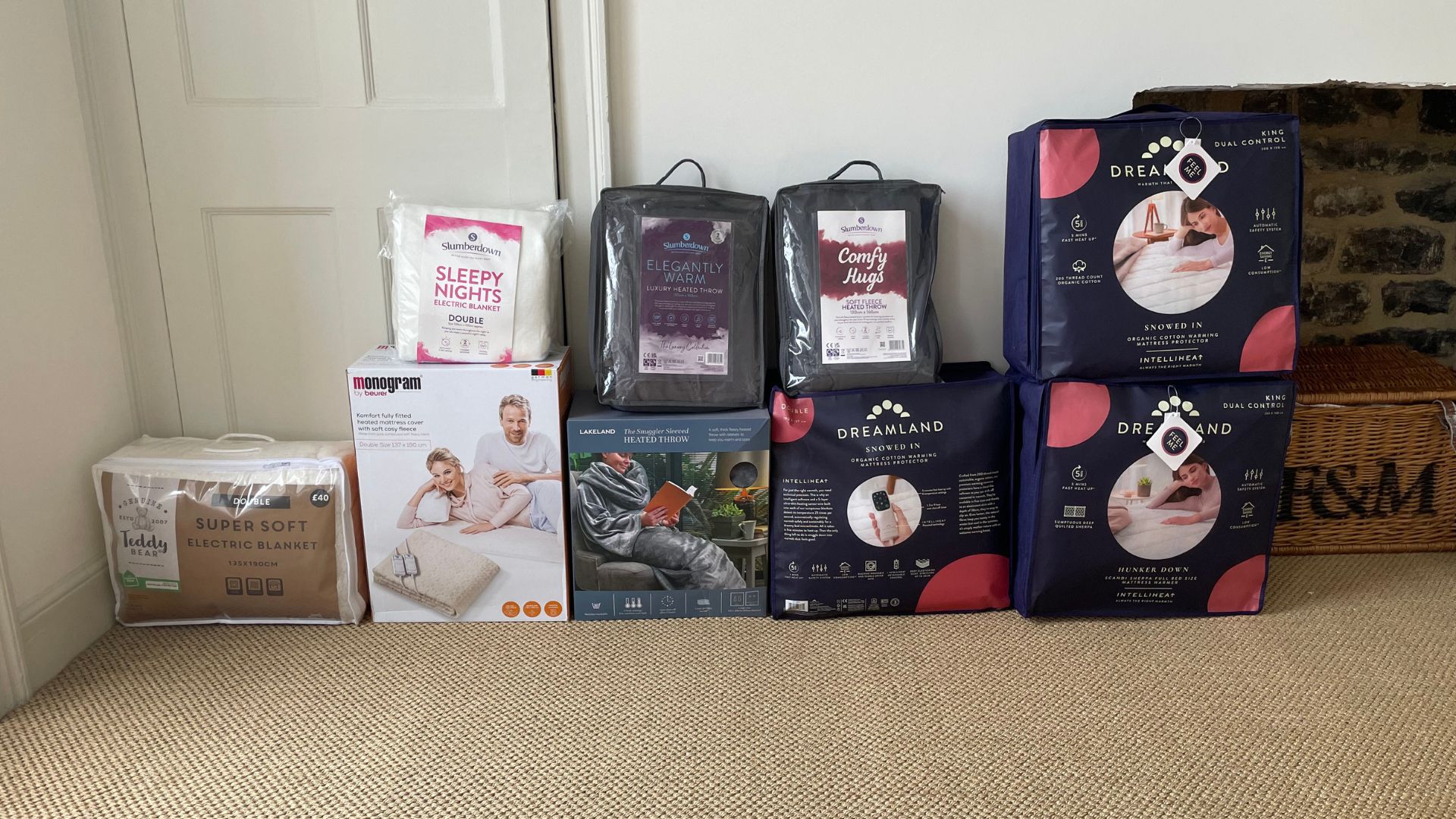
The people who say “comparison is the thief of joy” clearly haven’t done their shopping right. I’m a firm believer in shopping around, especially when you’re making an investment like this. After years of this job, I’ve come to realise that lots of people can’t be bothered to shop around though, which is where I come in. Having tested the best (and the worst) models on the market, I’ve got a whole encycolpedia of EB knowlege that’s bursting at the seams. I’m always comparing models as I test them, so I like to get some of this down on the record.
Normally, I pick one or two electric blankets that are similar to the one that I’ve tested. I like to look for one that is cheaper and one that is more expensive to help you gauge whether the electric blanket is good value or not. Some will offer extra features, others will skim these out. Both ways, you’ll be able to pressure test whether you like the one that I’m writing about, as well as whether you want to look at your options.
Final note
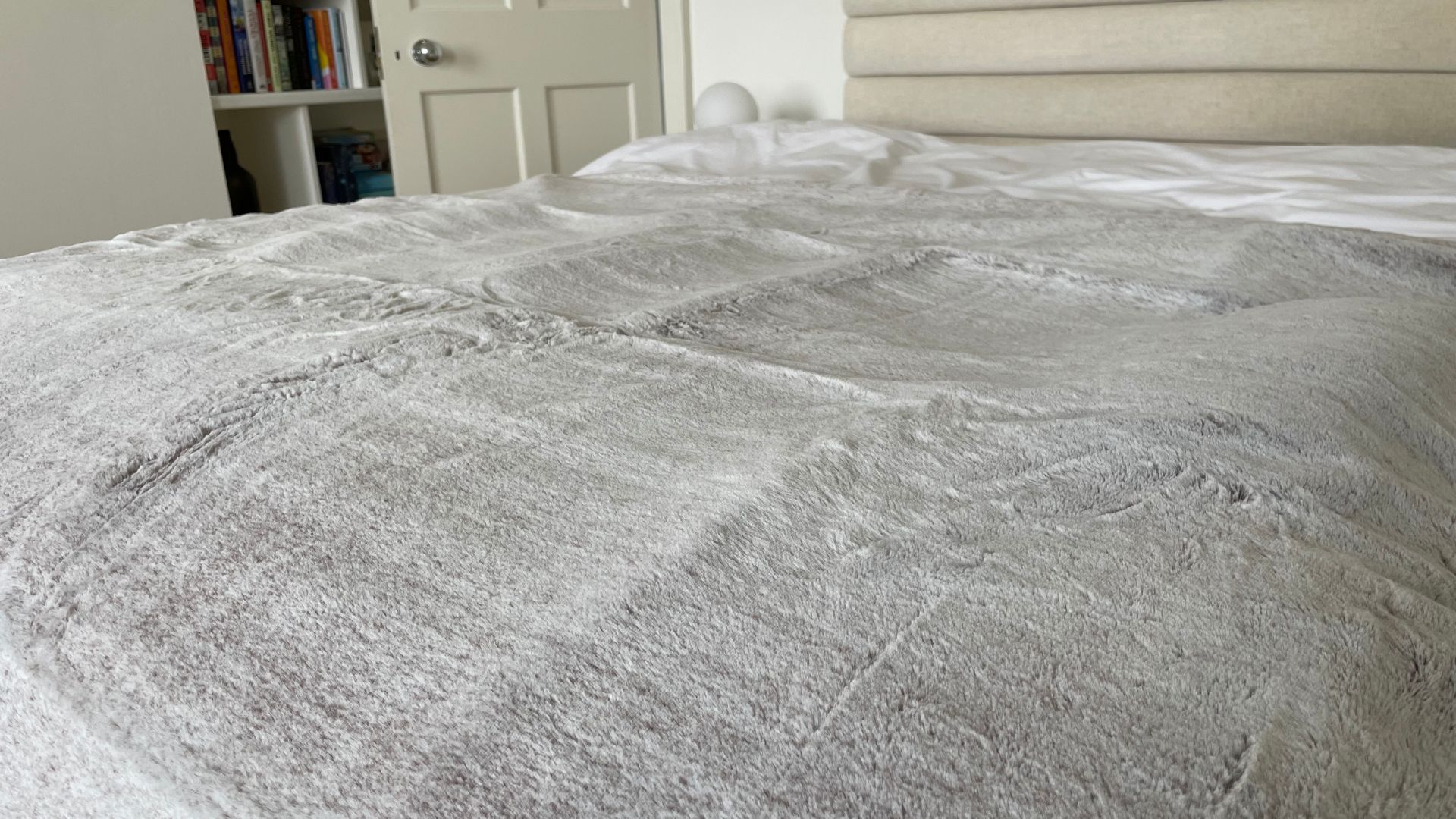
Lastly, I come to a conclusion on whether you should buy the electric blanket that I’ve tested. The answer is never yes or no, but more of a suggestion about the types of people who it might suit (and what other options should be on the table too). None of our reviews are sponsored, so you’ll get my honest, unbiased opinion throughout the whole article here. There really shouldn’t be any stones left unturned, but if you do still have burning questions, please don’t hesitate to email me. As you’ve heard, I’m an EB nerd.

Laura is woman&home's eCommerce editor, in charge of testing, reviewing and creating buying guides for the Homes section, so you'll usually see her testing everything from the best dehumidifiers to sizing up the latest Le Cruset pot. Previously, she was eCommerce editor at Homes & Gardens magazine, where she specialised in covering coffee and product content, looking for pieces tailored for timelessness. The secret to her heart is both simplicity and quality. She is also a qualified Master Perfumer and holds an English degree from Oxford University. Her first editorial job was as Fashion writer for The White Company.
-
 The Handmaid's Tale: Does June get Hannah back at the end of season 6?
The Handmaid's Tale: Does June get Hannah back at the end of season 6?It's been June's endgame from the very first moments of The Handmaid's Tale, but will she be reunited with her daughter Hannah at the end of season 6?
By Lucy Wigley
-
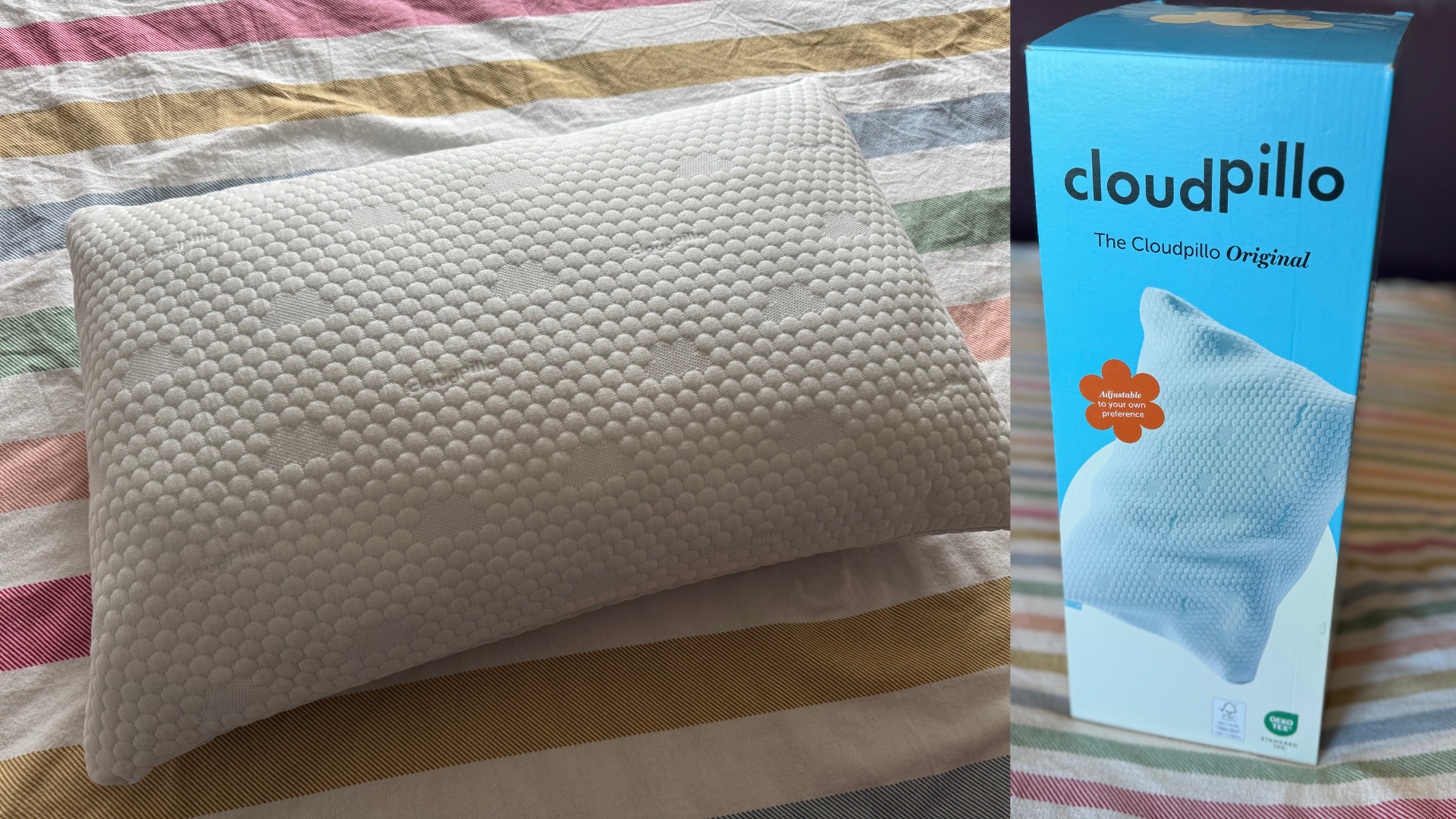 My decades-long quest for the perfect pillow ends here, but forget what you think you know about memory foam
My decades-long quest for the perfect pillow ends here, but forget what you think you know about memory foamPacked full of tiny pieces of shredded memory foam with a dual-sided cover to keep you cool, this is the next best thing to sleeping on a cloud
By Heidi Scrimgeour
